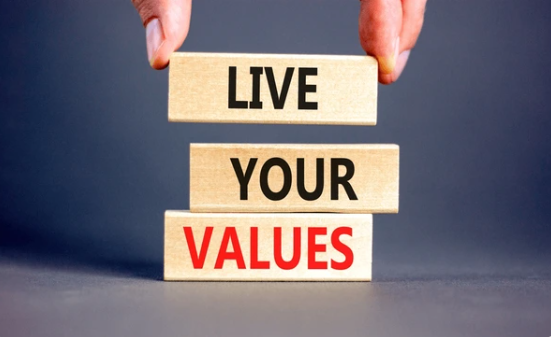At this time of year, mention of the word ‘value’ might have
you thinking of post-Christmas sales more than your psychological wellbeing,
but it is also the perfect time to recommit to your personal values.
Psychologist and author of The Happiness Trap, Russ
Harris, describes values as ‘desired qualities of action how you want to behave;
how you want to treat yourself, others and the world around you’. Different to
goals, values are more about who you want to be rather than what you want to do.
You can think about it as though your values are the map for
your life journey, whereas goals are pitstops along the way.
Why define your values?
Research shows that understanding your values and acting in
a way that agrees with them helps reduce feelings of anxiety and depression.
Setting goals that match up with your values also reduces procrastination,
because you are working towards something that is meaningful and important to
you. Once you know your values, things like decision-making and goal-setting become
easier.
Values-based living helps build meaningful relationships,
both within your inner circle as well as the wider community. Overall, your
values give you a clear direction and purpose which helps you to build a
richer, more fulfilled life.

How do you define your own values?
At the heart of it, values are what matters most to you.
Things like being creative, having integrity, or being kind are all values.
It can be hard when you first sit down to think about values
to come up with a list without a guide. You will find many value lists online.
Once you have identified your top five values, it is worth
thinking about how closely you are living to those values right now. If you find
things are not matching up, think about why that is and what you can do to get
back on track. Values may shift a little across your life, but your core values
will generally be your guideposts as you move through different stages.
Steve Hays, co-founder of Acceptance and Commitment Therapy
shares: ‘Values are like a compass: they help us navigate through the
challenges of life’.
5 questions to define your values
Try asking yourself these questions to get started on your
values quest:
1. Who do I admire and why?
2. What am I passionate about?
3. When am I at my happiest or most fulfilled?
4. What would I stand up for, even if it was unpopular?
5. How do I want to be remembered by the people I love?
These questions will help you dig deeper on what really
matters to you.